By Ananya Jain
To curb the pollution caused by littered and unmanaged plastic waste, the Government of India has imposed a ban on the manufacture, import, stocking, distribution, sale, and use of identified single-use plastic items, which have low utility and high littering potential all across the country.
The list of banned items — which came into effect July 1 — includes earbuds with plastic sticks, plastic sticks for balloons, plastic flags, candy sticks, ice-cream sticks, polystyrene (thermocol) for decoration, plastic plates, cups, glasses, cutlery such as forks, spoons, knives, straw, trays, wrapping or packing films around sweet boxes, invitation cards, cigarette packets, plastic or PVC banners less than 100 micron, stirrers.
🚨 Limited Time Offer | Express Premium with ad-lite for just Rs 2/ day 👉🏽 Click here to subscribe 🚨
To address the resolution of managing single-use plastic production, the government has also been taking measures for awareness generation towards the elimination of single-use plastics. Here are five student-led organisations that have embarked upon the path of zero waste:
1. Project Sneh

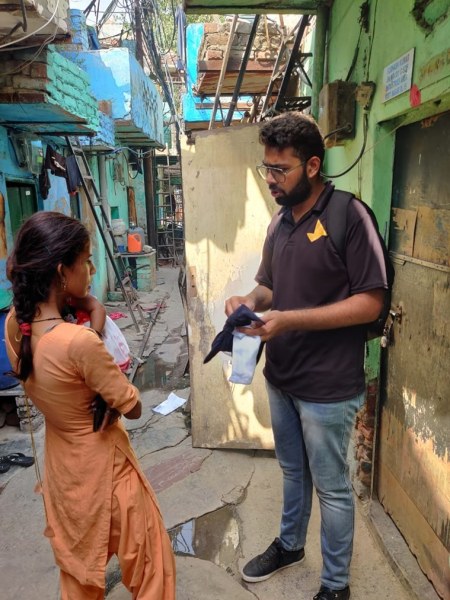 Project Sneh conducts donation drives to provide cloth diapers for infants. (Credits: Project Sneh)
Project Sneh conducts donation drives to provide cloth diapers for infants. (Credits: Project Sneh)
Ever wondered if the disposable diapers your children wore during infancy were safe and eco-friendly? Disposable diapers contain a layer of petroleum-based plastic that acts as a waterproof coating, in turn jeopardising the environment. To fight this issue, Project Sneh, run by Naman Utreja from Motilal Nehru College, has manufactured reusable cloth diapers at affordable rates.
“Our diapers are the perfect option for infants as well as the environment. They are skin-friendly, reusable, easy to wash, eco-friendly,” he stated.
The CPSIA-certified diapers are suitable for children up to three years of age for at least a time span of five months at a rate of Rs 50.
View this post on Instagram
Following the cycle of ‘wear-wash-repeat’, these diapers help in inculcating basic sanitation habits among all strata of society across India.
Concerning the recent ban on single-use items, Uterja stated, “This will be a huge help as we also promote the reuse of products by introducing different alternatives and creating awareness in society”.
2. Project Sugam

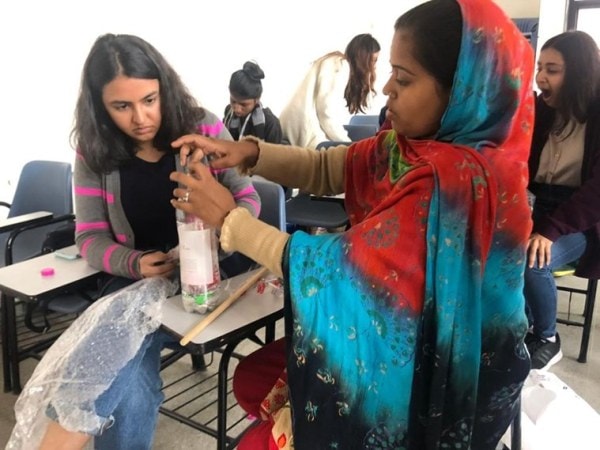 The team of Project Sugam preparing an Ecobrick. (Credits: Project Sugam)
The team of Project Sugam preparing an Ecobrick. (Credits: Project Sugam)
What do you do with a plastic bottle after drinking all water from it? Ideally, throw it away in a dumpster or maybe use it as a carry-on for your next outing.
Project Sugam has been collecting single-use plastic bottles for making eco-bricks to construct publicly accessible washrooms in Delhi. Headed by Eshita Mahajan and Kruti Jain, from Jesus and Mary College, Sugam has achieved the ‘People’s Choice Award’ in the Enactus World Cup, 2021, for this charitable effort.
Talking in detail about Sugam, Mahajan stated, “We make the eco-bricks by packing single-use plastic into plastic bottles to serve as an ideal and re-usable building block. They are made entirely from non-recyclable plastic, which when conjoined with cement and mortar creates a sturdy and resilient structure.”
View this post on Instagram
Sugam has reduced carbon dioxide emissions up to 2531 kg by collecting 1646 kg of single-use non-recyclable plastic over the last year. Each of the structures will reduce carbon dioxide emissions by 1538 kg, said Kruti Jain.
Furthermore, in the long term, Sugam aims to diversify and use eco-bricks to construct other products such as dustbins and disabled-friendly street furniture and expand operations outside of Delhi NCR.
3. Project Tabeer

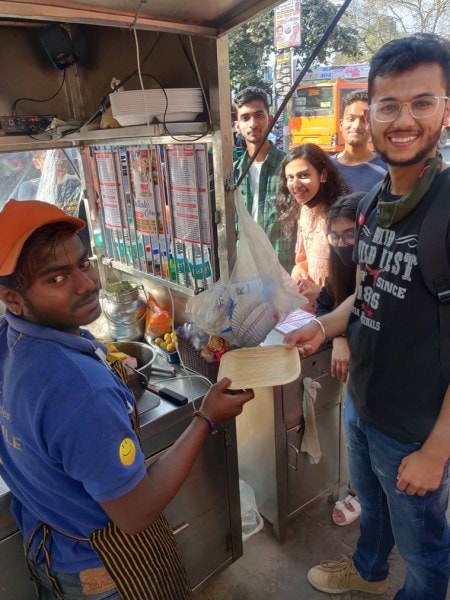 Project Tabeer conducts donation drives to provide eco-friendly tableware to food vendors. (Credits; Project Tabeer)
Project Tabeer conducts donation drives to provide eco-friendly tableware to food vendors. (Credits; Project Tabeer)
‘Tabeer’ means the ‘interpretation of dreams’. The motto of this project is to fulfill the dream of creating a safe and sustainable future for generations ahead. Directed by Manya Dodwani and Anmol Jagetiya from Satyawati College, Tabeer manufactures areca cutlery to substitute plastic tableware.
Areca is a tree found in the southernmost regions and eastern parts of India, which comprises medicinal properties used for the treatment of glaucoma. “We use the areca leaf by heating and pressing it in a machine to make areca cutlery. It is 100 percent chemical-free, biodegradable, oven-friendly, and leak-proof,” Dodwani stated.
View this post on Instagram
Moreover, the waste generated while making areca cutlery is used as fodder for animals, making it a zero-waste project.
4. Project Qadira

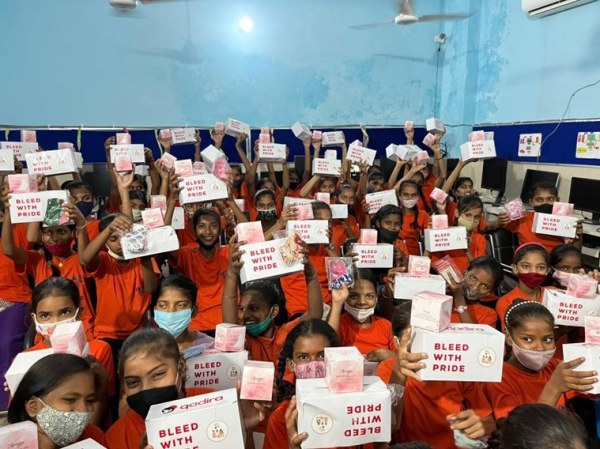 Project Qadira envisions for the world to ‘Bleed With Pride’. (Credits: Project Qadira)
Project Qadira envisions for the world to ‘Bleed With Pride’. (Credits: Project Qadira)
“Viewing Menstrual hygiene management as a basic necessity and creating products that are affordable, good for the users and the environment are the key pillars of Project Qadira,” stated Drishti Makhijani, the founder of Project Qadira and a student of Bennett University, Greater Noida.
Project Qadira aims to offer a range of sanitary pads that are skin-friendly, reusable, economical, and environment friendly. Throwing light on the drawbacks of a disposable sanitary pad, Makhijani stated, “A disposable sanitary pad consists of 90 percent plastic, which is hazardous for the health of a menstruator and also contaminates the soil, air, and water when dumped. Our pads are safe, reusable, and non-polluting.” “We have provided 8000 reusable pads and prevented 11.52 tons of plastic waste from being generated,” she added.
To expand their aim of educating the masses, Project Qadira has held and curated 17+ menstrual literacy, with translations available in multiple languages (English, Hindi, and other regional languages), approved by gynecologists and educators.
View this post on Instagram
Recently, Project Qadira hosted India’s largest youth-led menstrual and sex education campaign named Pehel in collaboration with Enactus India. The event was addressed by Avanti Nagral, an artist who greeted the audience with music and songs, and Dr Anjali Kumar, a gynecologist who presented her perspective on the dire need for menstrual literacy.
At present, Qadira is working on building a D2C brand named ‘Qadira Hygiene’.
5. Project Basera

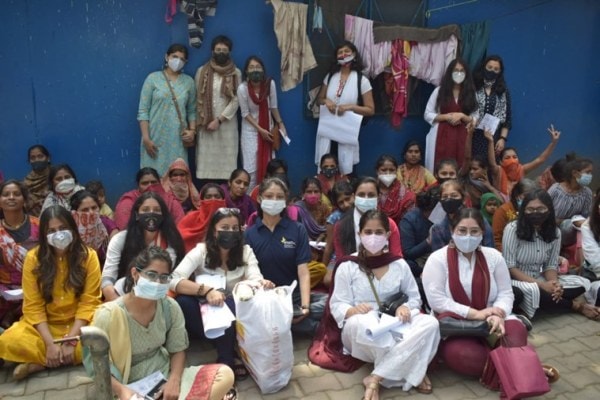 Project Basera aims to transform the lives of women by organising sensitisation sessions, health camps, educational webinars, etc. (Credits: Project Basera)
Project Basera aims to transform the lives of women by organising sensitisation sessions, health camps, educational webinars, etc. (Credits: Project Basera)
Personal protective equipment commonly known as PPE was welcomed during the coronavirus epidemic. But, little are we aware of the dark reality of PPEs. The PPEs have exacerbated the plastic crisis contributing to the doom of our environment.
Tackling the issue, Vanshika Bansal, a third-year student from Shaheed Sukhdev College of Business Studies, along with her team at Project Basera, has been collecting PPE scrap and converting it into multipurpose mats and bags, for the last two years. “The PPE waste during Covid-19 had reached the tremendous height, for which there is no disposable mechanism, and we have the solution for it,” she stated. Project Basera solves the problem of urban homelessness and management of plastic waste from textiles/PPE scrap, both.
Delving into the details of the production, Bansal stated, “The scrap collected from the PPEs is upcycled into multipurpose mats and bags through the braiding procedure and shipped from the manufacturing site with the help of delivery partners to the customers.” In an attempt to uplift the underprivileged communities, Basera also provides employment to females belonging to government shelter homes.
Aiming to transform the lives of homeless women through this entrepreneurial action, Basera has organised sensitisation sessions, regular surveys, health camps, educational webinars, etc., for underprivileged communities belonging to the shelter homes.
View this post on Instagram
In the wake of the government’s decision to ban plastic, Bansal stated, “When we see the support of the government, it motivates us and accentuates the problem we are solving. It is high time we start looking for plastic alternatives, as we have already suffered enough.”
(The author is an intern with Indian Express Online)
Best of Express Premium
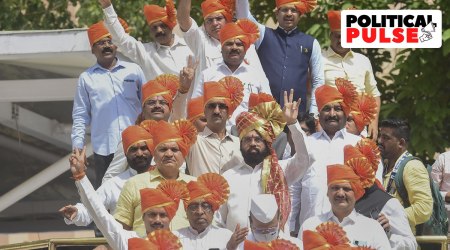 PremiumBJP and Shiv Sena allies might not go after Uddhav faction
PremiumBJP and Shiv Sena allies might not go after Uddhav faction
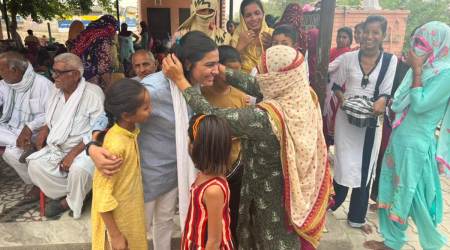 PremiumIn Maharashtra political drama, cameo by a 30-year-old from Haryana makes…
PremiumIn Maharashtra political drama, cameo by a 30-year-old from Haryana makes…
 PremiumC Raja Mohan writes: With China’s expanding influence, Asia is also…
PremiumC Raja Mohan writes: With China’s expanding influence, Asia is also…
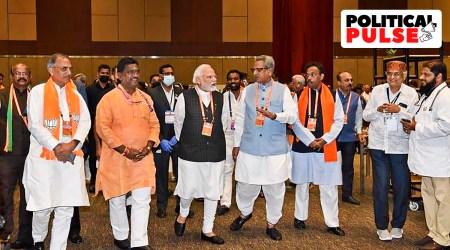 PremiumBJP’s Pasmanda Muslims outreach plan after PM message a new worry f…More Premium Stories >>
PremiumBJP’s Pasmanda Muslims outreach plan after PM message a new worry f…More Premium Stories >>
📣

